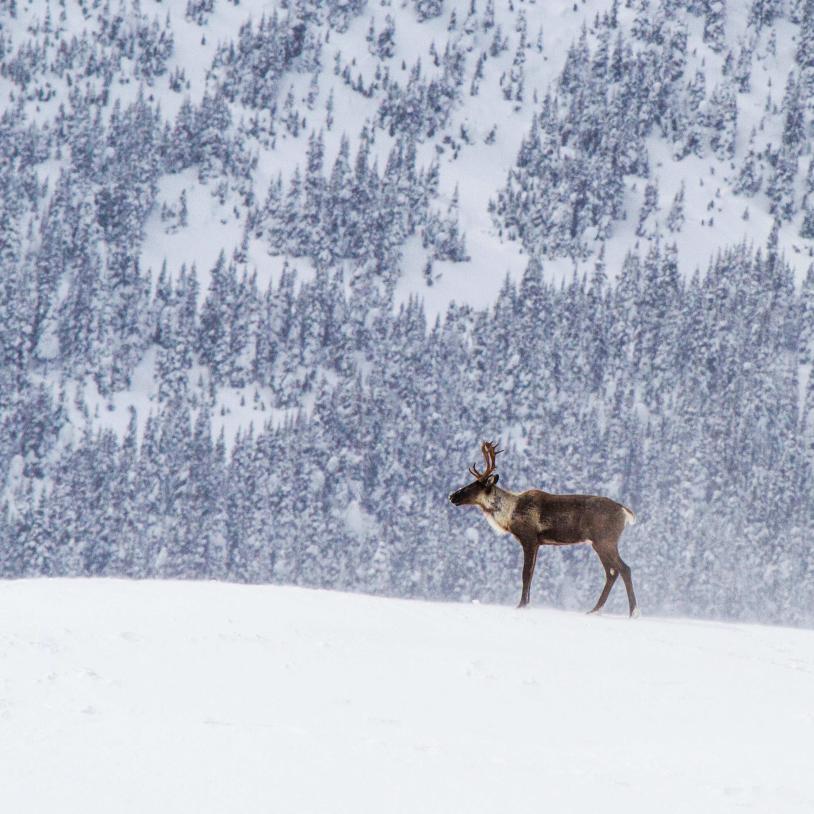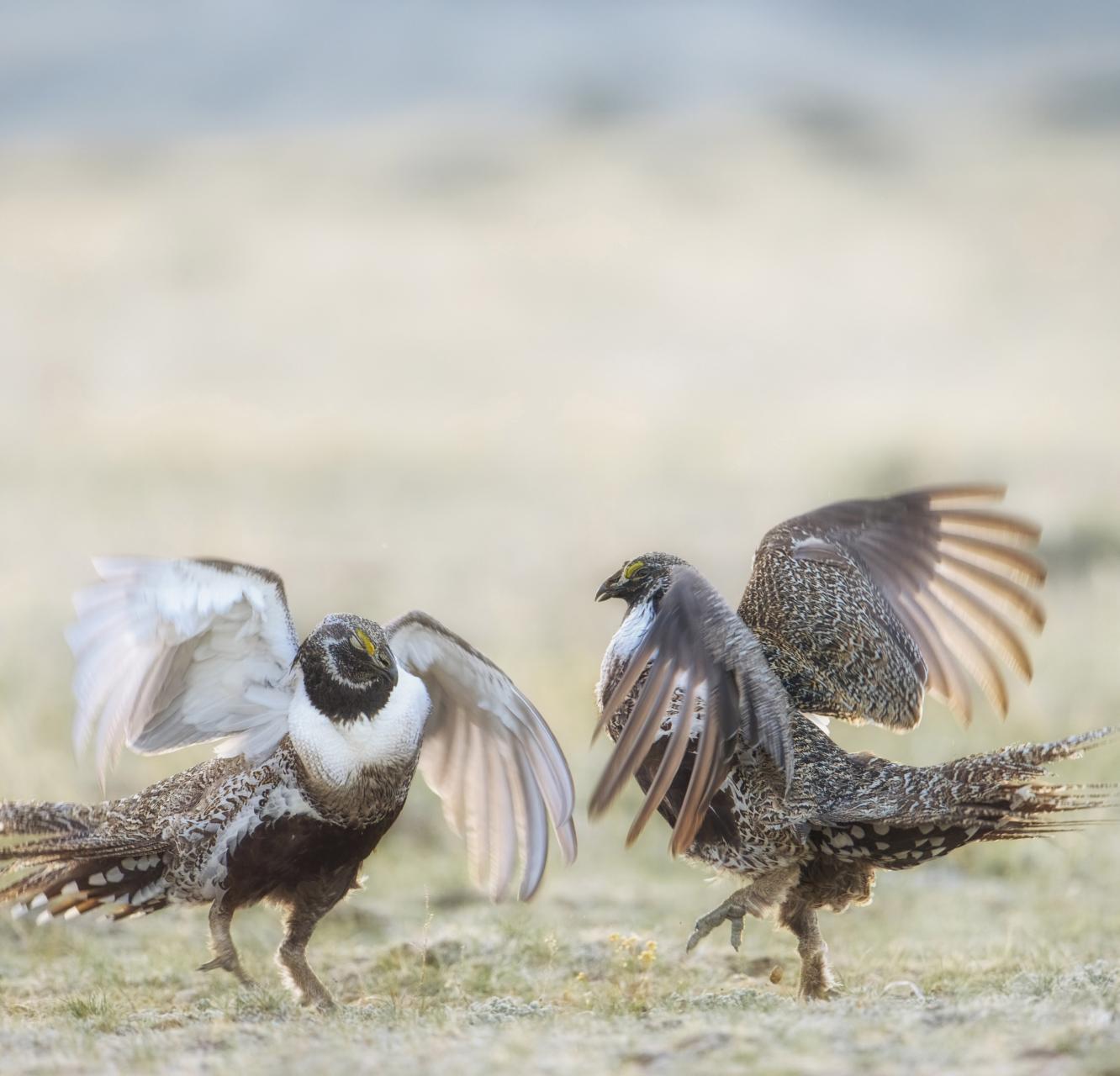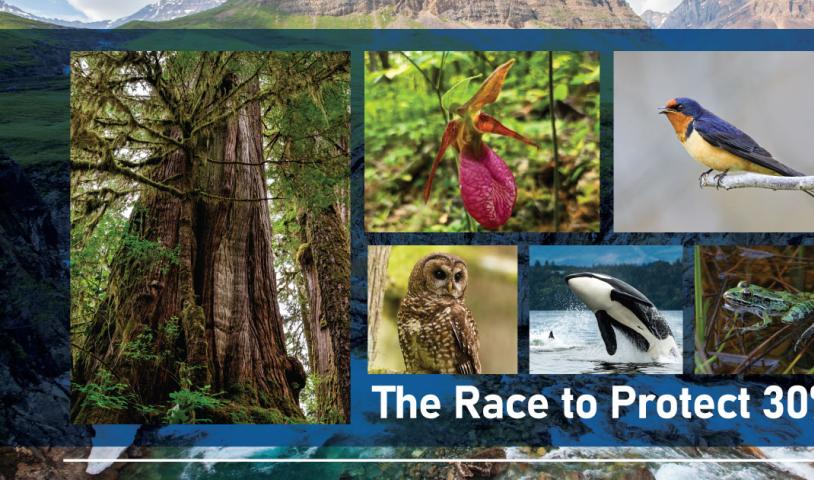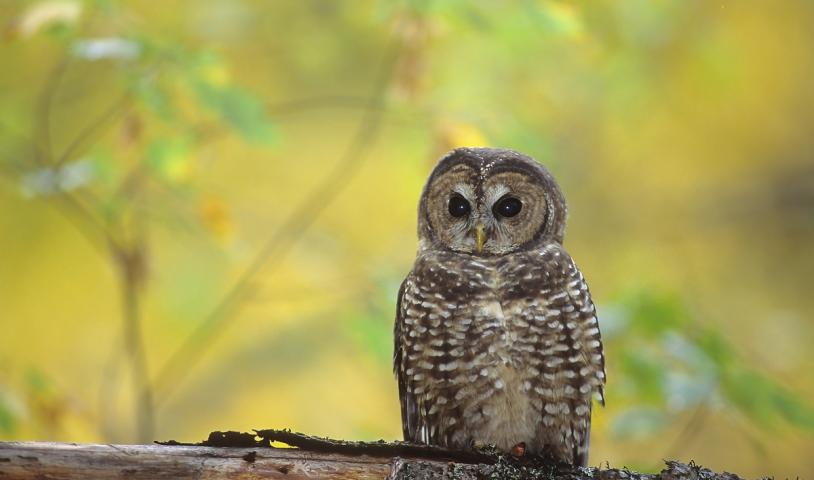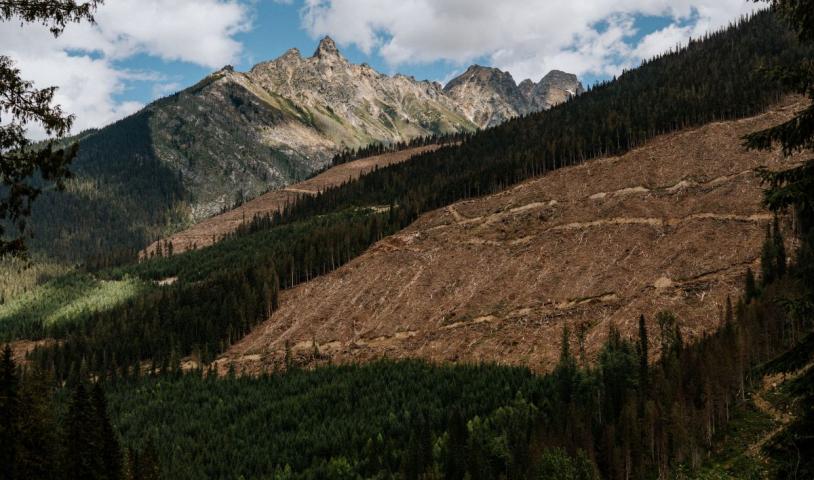Salmon Seige ‑ Wild Times
Friday, November 6, 2009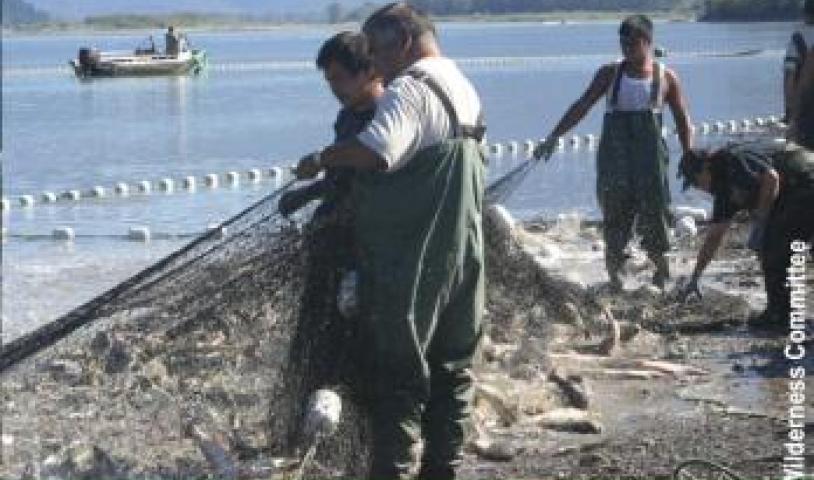
November 6th, 2009 - Read Joe Foy's Wild Times column in the Watershed Sentinel as he looks at a better way to fish for salmon.
It was a September day in the Fraser Valley that seemed just about perfect, with a robin’s egg blue sky above, fresh breeze right off the Fraser River, jade green Coast Mountains rising before me, the icy peaks of the Cascades shining on the ridge line behind.
But as I looked out over the surface of the big river, I and everyone else there on the gravel flats knew that it wasn’t a perfect day at all. In the late summer of 2009, the massive Fraser River sockeye salmon run had collapsed.
Thirteen million sockeye had been predicted to return to the river after spending 4 years in the North Pacific ocean. Less than 2 million did. More than 11 million sockeye had simply vanished. The Fraser’s title as the largest, most productive wild salmon
river on the planet is looking shakey.
“Pull, you guys!” A big guy, with a barrel chest and a booming voice, was leading a chain of helpers as they strained to pull in a large thick rope that bowed far out into the river, then cut under its surface. The big guy was Ken Malloway – Grand Chief Ken Malloway actually, of the Sto:lo Nation. His crew were mostly the men and women of his extended family. They were doing a “beach seine” as part of a commercial fishery for wild pink salmon.
What happened next was fascinating. The big rope was attached to a big net and as it was pulled closer to the gravel beach, I could see that it was full of big fish – mighty big fish!
Soon the fish were thrashing around in the shallow water. Ken’s crew spaced themselves along the length of the flapping fins with Ken behind them. “Put back the coho, sockeye and sturgeon,” he called out. And Ken’s obviously experienced crew did just that. They gently picked up the fish from endangered populations and returned them to the river. The pinks and the spring salmon, which were from healthy runs, they kept.
Ken’s pretty famous in these parts. The beach seine selective fishery is actually not an ancient form of Sto:lo fishing. It was Ken who experimented with the beach seine style, until he made it work. On that September day I could see clusters of Sto:lo families, strung out along the beach fishing in the same way as Ken’s family.
If the once mighty salmon runs are destined to survive and revive, people like Ken Malloway will be one of the reasons why.
Wild Pacific salmon are under siege on all sides, and it will take new way of living with salmon – to make sure we don’t end up living without salmon.
We need to greatly reduce the ocean based industrial fishery, which can scoop up endangered runs of salmon mixed in with healthy runs, and instead move to selective methods of fishing, like the river beach seine. We’ve seen the results of hammering endangered runs, not only in declining numbers of returning salmon to many of our streams and rivers, but in reports of starving orca, whales, and grizzly bears.
We need to wipe the stain of salmon farming from our coast. Deadly sea lice infestation, predation on young wild salmon, and disease outbreaks are a ticking time bomb. And I’m not a big fan of simply moving the salmon farms onto land either. After all, how many “farms” do you know of that exclusively feed wild things to their farm animals? Salmon farms result in the strip mining of southern oceans of wild fish used to render down into fish farm pellet feed. Salmon farms are a blight on our ocean, and the southern oceans too. Shut ‘em down.
We need to look at all things salmon. And now, thanks to constant pressure from salmon activists and NDP MP Peter Julian, the federal government has recently announced that it will conduct a judicial enquiry into the disapearance of the Fraser River sockeye.
It’s a start. We can see that a united effort to push the federal government into doing the right thing can work. I believe there is now a glimmer of hope that we can finally get the sweeping changes needed. But it will take constant vigilance and the participation of every one of us who cares about the fate of wild salmon to make the enquiry work. I figure if folks like Ken Malloway and his family can pull their weight in the fight to save the salmon, the rest of us can too.
